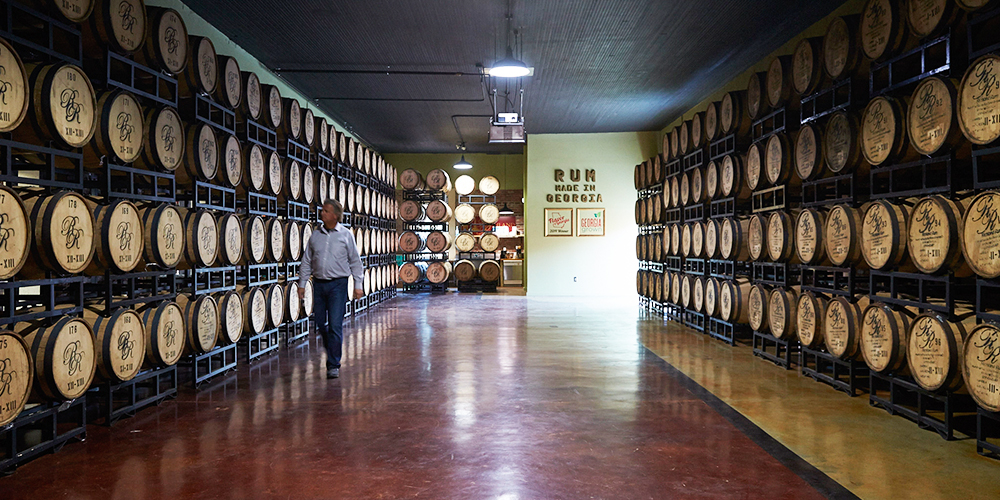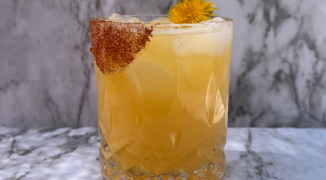On December 5, 1933, the last three states needed to deliver the death blow to Prohibition voted to ratify the 21st Amendment. While the “great experiment” lasted a brief 13 years, the damage had been done to America’s relationship with alcohol: the 21st Amendment’s ratification gave states the right to control the sale of alcohol within their borders, but it came with heavy regulations, costly taxes, and hefty fines to producers who stepped out of line. A federal three-tier system was constructed wherein producers can only sell in bulk to wholesale distributors, who in turn sell to retailers, who then sell to consumers. How each state abides by this system is entirely up to local lawmakers, resulting in a complex and tangled web of laws that can vary widely from one state to the next.
As each state’s specific set of laws is different from the next, so too is the rate of progress to overturn them. In Georgia, for example, distillers have their work cut out for them as they work to build a growing industry against a backdrop of antiquated laws. An estimated 3,000 legal distilleries were wiped out in the United States with the enactment of Prohibition, including 80 in Georgia according to 1920 tax records. Eight states, including Georgia, opted out of the 1933 federal repeal vote. However, on March 22, 1935, Georgia Governor Talmadge finally signed the “Alcoholic Beverage Control Act” repealing statewide prohibition, allowing distilling of spirits once again. Today, only 14 distilleries are in operation within the state as Georgia works to untangle its original post-prohibition laws that prohibit direct sales to consumers and, until recently, marketing to consumers.
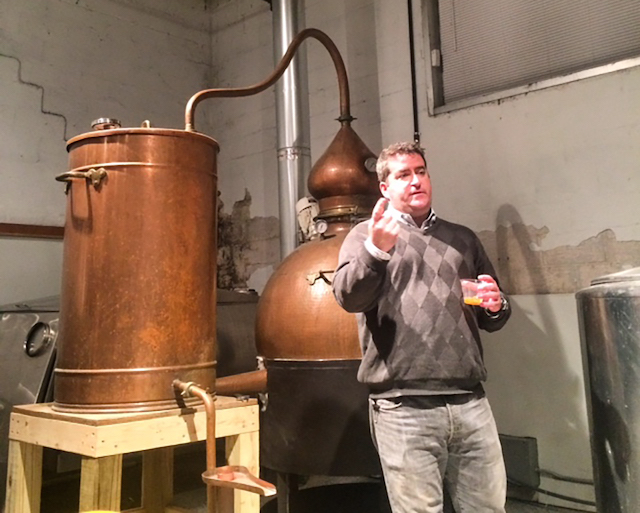 Owner and partner of Independent Distilling Tommy Williams giving a tour and discussing the use of copper pot stills. Photo by Beth McKibben.
Owner and partner of Independent Distilling Tommy Williams giving a tour and discussing the use of copper pot stills. Photo by Beth McKibben.
In January 2016, the Georgia Craft Brewers Guild and the Department of Revenue (DOR) came to a compromise allowing alcohol producers, including distilleries, to advertise their products to consumers. Current state law already grants producers the right to provide consumers with limited tastings and one souvenir bottle at the end of a paid tour. While the compromise isn’t the direct sales verdict distillers hoped for, it is a step forward. “Advertising gives us the ability to build up our brands with consumers, something we were previously prohibited from doing. The impact this new rule will have on our bottom line remains to be seen, but I see it as a positive step. None of us wants to be a distributor, we simply want a level playing field,” Tommy Williams of Decatur’s Independent Distilling said of the compromise.
Erik Vonk, owner of Richland Rum in Richland, Georgia, further explained the frustration with the franchising and distribution laws. “In order for me to sell to a consumer, I have to send you to the package store across the street. I can’t sell you my product. It goes further than that. If the package store needs three cases of rum, I have to put those cases on a truck, it drives to my distributor 200 miles away in Atlanta, the distributor puts it onto another truck, and drives it back to the package store across the street. This is wasteful.”
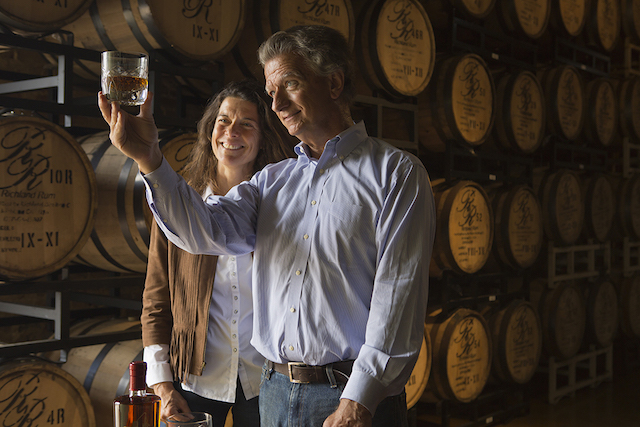 The owners of Richland Rum, Erik and Karin Vonk, lament the wastefulness caused by Georgia’s franchising and distribution laws. Rather than selling directly to consumers, their products have to be loaded onto a truck, sent to a distributor and then driven back out to the various liquor stores. Photo by Hector Sanchez
The owners of Richland Rum, Erik and Karin Vonk, lament the wastefulness caused by Georgia’s franchising and distribution laws. Rather than selling directly to consumers, their products have to be loaded onto a truck, sent to a distributor and then driven back out to the various liquor stores. Photo by Hector Sanchez
Craig Moore, partner at Old Fourth Distillery in Atlanta is worried Georgia is getting left behind in the nation’s craft spirits boom as other states realize the potential economic impact of distilleries. “Georgia and Mississippi are the last states to not allow breweries and distilleries to sell their product to customers at their own facilities,” he says, “and it looks like Mississippi is about to change that, leaving Georgia standing alone.”
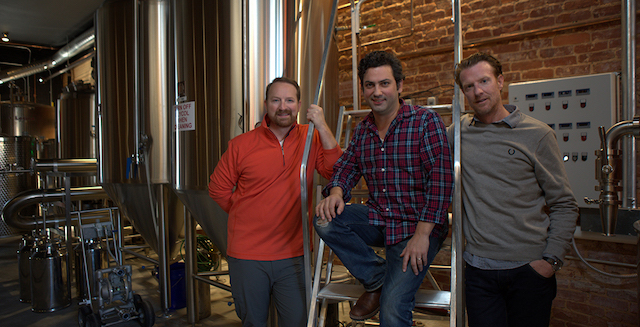 Old Fourth Distillery owners Craig Moore, Gabe Pilato and Jeff Moore worry that Georgia is being left behind as craft distilling booms in other parts of the nation. Photo courtesy of Old Fourth Distillery.
Old Fourth Distillery owners Craig Moore, Gabe Pilato and Jeff Moore worry that Georgia is being left behind as craft distilling booms in other parts of the nation. Photo courtesy of Old Fourth Distillery.
In 2010, Cathead Vodka became Mississippi’s first legal distillery since the state repealed Prohibition in 1966. One of only two distilleries in operation, Cathead has managed to become one of the craft distilling world’s best success stories. While the laws pose some difficulties in operating, Cathead Vodka partner and owner, Richard Patrick, feels Mississippi has been receptive to updating its liquor laws, having passed a bill in 2013 allowing for tours and tastings a mere three years after Cathead opened its doors.
Many craft distilleries have asked Patrick and his partner, Austin Evans, how it’s possible for them to have grown their distribution to 15 states in six years. Patrick explained, “When we started out, we didn’t build our business model around tours and tastings, [because] those laws didn’t exist. We focused on wholesale distribution. My background is on the supply side of the industry, which has helped Cathead grow the wholesale portion of our business. We just took a different approach to growth. It’s what we had to do.”
Patrick says the allowance of tours and tastings on site is a bonus they never counted on for the growth of their distillery. The ability to showcase their products to customers on the homefront has only helped further the brand’s reach within Mississippi.
 In 2010, Cathead became Mississippi’s first legal distillery since the state repealed Prohibition in 1966. Owners Richard Patrick and Austin Evans have advanced the case for distilleries in the state, and now they’re allowed to conduct tours and tastings. Photo courtesy of Cathead.
In 2010, Cathead became Mississippi’s first legal distillery since the state repealed Prohibition in 1966. Owners Richard Patrick and Austin Evans have advanced the case for distilleries in the state, and now they’re allowed to conduct tours and tastings. Photo courtesy of Cathead.
What is apparent in restrictive states like Georgia is that distillers are not in it for the profit but the passion, making this determined lot more akin to their ‘don’t tread on me,’ moonshining predecessors. Vonk explained, “Opening a distillery in Georgia, anywhere really, takes an extraordinary amount of financial stamina and passion. You have to be prepared for the long haul. Research the laws and understand them. Work closely with your state’s lawmakers and the DOR.”
Mark Allen, President of the Georgia Distillers Association (GDA) and owner of Lazy Guy Distillery in Kennesaw agrees with Vonk’s sentiments on being financially prepared. Funding the distillery himself has made it easier to stay afloat, but for those funded by investors or bank loans, the financial risks are high.
“We’re the most heavily taxed and regulated business in Georgia. Having direct sales would be life-changing for every distillery and brewery in the state. It would have an immediate impact,” Allen said of the financial implications of direct sales.
Founded in 2013, the GDA is a fairly young organization of a handful of distillers eager to foster growth of craft distilleries. “We’re not trying to change distribution laws. We simply want the freedom to grow our business like any other. States where direct sales is legal have seen increased tourism and revenue. That one piece of the law could mean hundreds of millions of dollars for Georgia,” Allen explained. He feels Georgia lawmakers could look to neighboring South Carolina for guidance for an achievable compromise.
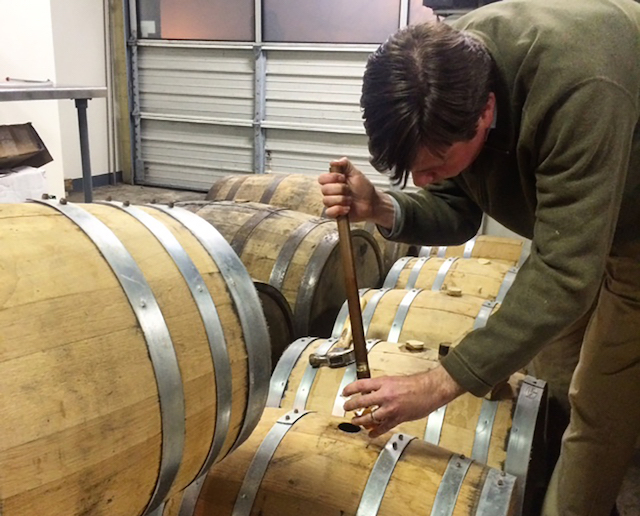 Owner and partner of Independent Distilling, Michael Anderson, tapping a cask of still aging, special edition whiskey at the opening of their new tasting room in Decatur, GA. Photo by Beth McKibben.
Owner and partner of Independent Distilling, Michael Anderson, tapping a cask of still aging, special edition whiskey at the opening of their new tasting room in Decatur, GA. Photo by Beth McKibben.
Ann Marshall and her husband and partner, Scott Blackwell, opened Charleston’s High Wire Distilling in 2013 after Wadmalaw Island’s Firefly Distillery quietly lobbied South Carolina to create an affordable microdistillery license. This, coupled with the repeal of the mini bottle law to a free pour system behind the bar in 2005, allowed the state to cultivate a pro-distillery culture while thrusting their cocktail scene onto the national stage.
Tours, tastings, and a sales cap of three bottles per day, per customer have enticed an estimated 30 distilleries (five of those in the Charleston area) to open over the last three years. While Marshall believes South Carolina views distillers and brewers positively, there are still battles to be fought, including allowing distilleries to sell cocktails out of their tasting rooms, Sunday sales, and working within a four-tier system.
“Retailers in South Carolina sell product to bars and restaurants, not distributors. The fourth tier means there’s another hand taking margin off your product. Thankfully, we have great retail partners and are fortunate for the other allowances in the laws from the state. There are bigger battles to wage — the sale of cocktails is one we are hoping to reach an agreement on with state lawmakers soon,” Marshall explained.
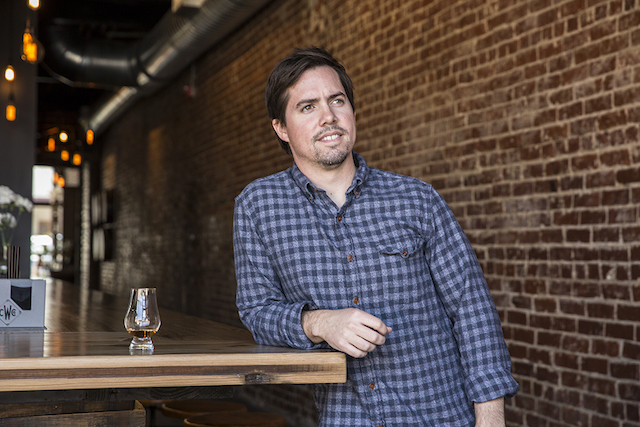 Tim Piersant, founder of Chattanooga Whiskey, launched a “Vote Whiskey” campaign and ultimately achieved the right to distill whiskey in Hamilton County, Tenn. after 100 years. Photo by Hollis Bennet.
Tim Piersant, founder of Chattanooga Whiskey, launched a “Vote Whiskey” campaign and ultimately achieved the right to distill whiskey in Hamilton County, Tenn. after 100 years. Photo by Hollis Bennet.
Owner and founder of Chattanooga Whiskey, Tim Piersant, understands the frustrations craft distillers face. “We weren’t fighting for statewide direct sales like Georgia. That already exists here. But before 2013 in Hamilton County, I wasn’t allowed to distill spirits. The state leaves it up to counties. And thus, the ‘Vote Whiskey’ campaign was born.”
Chattanooga may be known for its famous train, but up until Prohibition, it was one of the largest whiskey distilling cities in the nation. The most recognizable brand to reside in the Choo Choo city for a time was Four Roses; which went from Atlanta to Chattanooga before finally moving to its permanent home in Lawrenceburg, Kentucky.
Tennessee was already warmed to the idea of whiskey production, having two of the largest distilleries in the country, George Dickel and Jack Daniels, generating millions in tourism and tax revenue every year. Before 2009, only three counties in the state were legally allowed to distill. With the passage of the bill championed by Ole Smoky Moonshine and Corsair Artisan Spirits, 41 more counties opened their doors to craft distillers, but Hamilton County, where Chattanooga is located, was not one of them. They would have to wait four more years for Piersant’s publicly driven “Vote Whiskey” campaign to finally achieve the right to distill whiskey after 100 years. Piersant reflected on the bill’s passage, “It was a bit controversial and rolled several times before it finally passed on the last day of the general assembly. Many people want to build craft distilleries in Tennessee because of our heritage. At the time our bill was in session, we had a ton of supporters from the community, the state, and from the industry pushing to get this passed.”
Tommy Williams believes Georgia, and states like his, are closer than ever to a fair compromise, and continues pushing for a healthy dialogue with lawmakers. “New liquor laws are being introduced in states across the nation every year,” he says. “Times are changing. It took us 81 years to get here, it may take another five years to level out the playing field.”
Luckily, these distillers are in it for the long haul.


